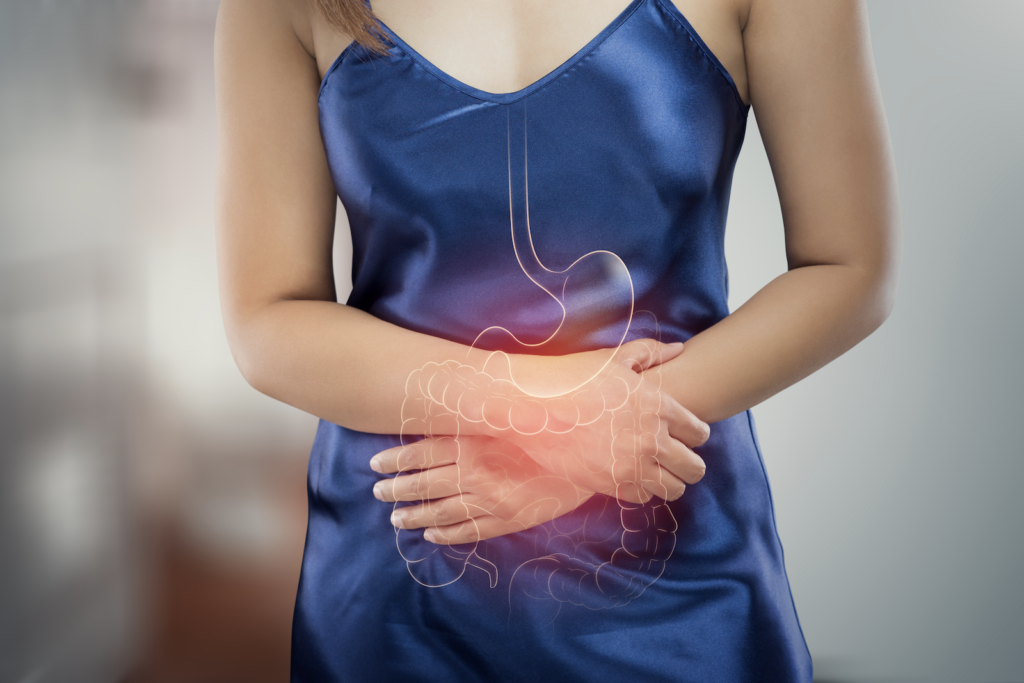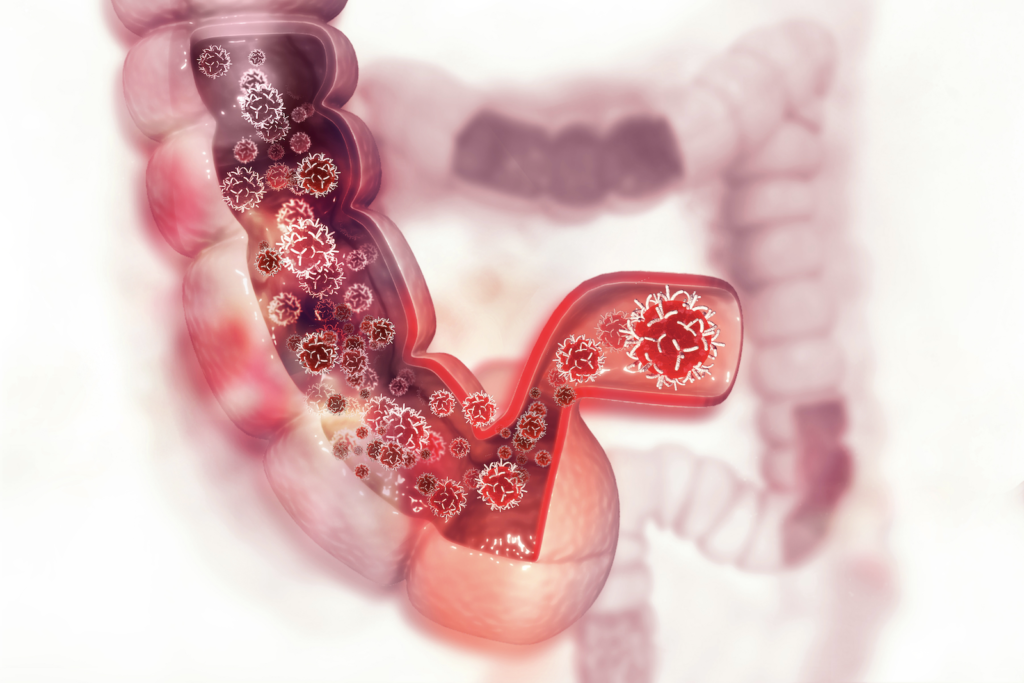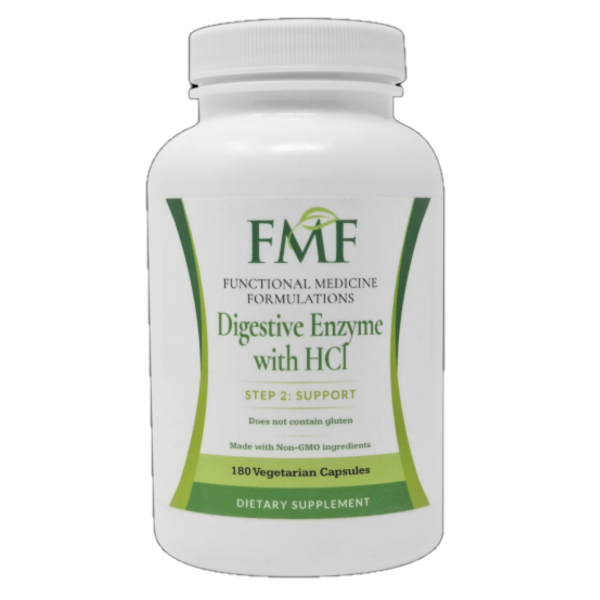Effective Colon Pain Management and Treatment Options
Understanding and Treating Your Abdominal Pain
- About the Colon|
- Causes of Colon Pain|
- Testing and Diagnosing Colon Pain|
- How to Manage and Treat Colon Pain|
- Getting Control Over Colon Pain|
- Recommended Products|
No matter the cause, colon pain is not pleasant. Many people with gut issues experience some form of abdominal pain, which can manifest as bloating, cramping, constipation, loose stools, and other common symptoms. If your pain is coming from your colon, don’t worry — there are multiple ways to manage and prevent it.
We’ll cover some different causes of colon pain as well as ways to prevent and manage your pain.

How to Get Rid of Colon Pain: A Snapshot
Before we dive into the details, let’s take a quick look at some of the possible causes of colon pain and how to manage it.
- Causes of colon pain:
- Inflammatory bowel disease (IBD) including ulcerative colitis or Crohn’s
- Irritable bowel syndrome (IBS)
- Small intestinal bacterial overgrowth (SIBO)
- Hidden food sensitivities
- Diverticulitis
- Colon cancer
- How to treat colon pain:
- Identify food triggers and find your ideal diet
- Paleo or autoimmune Paleo (AIP)
- Low FODMAP
- Incorporate digestive supports
- Elemental diets
- Probiotics
- Digestive enzymes
- Work on stress management
- Identify food triggers and find your ideal diet
What Is the Colon?
The colon is another word for the large bowel or large intestine. It is a major part of your digestive system. It connects to the small intestine at one end and the anus at the other.
The food you eat enters your colon after passing through your esophagus and stomach. The colon absorbs water, salt, and nutrients from the food and turns it into fecal matter in the lower part of the colon (called the sigmoid colon). That fecal matter then passes into the rectum before being excreted as a bowel movement through the anus.
Causes of Colon Pain
Colon pain has a variety of causes, ranging from the acute (like when you eat something that doesn’t agree with you) to the chronic (such as digestive diseases).
Colon pain can be caused by:
- Diet (e.g. food sensitivities)
- Digestive diseases, like IBD, IBS, diverticulitis, or Crohn’s disease
- Dysbiosis or bacterial overgrowth (such as SIBO)
- Cancer
Ulcerative Colitis
Ulcerative colitis is one type of inflammatory bowel disease (IBD). It is an inflammatory condition of the colon that causes bleeding and severe tissue damage to the lining of the rectum and colon. It can be isolated into the lower part of the colon as well as the rectum or occur throughout the whole colon.
People with ulcerative colitis experience colon pain, usually in the low abdomen. Rectal pain is also common [1].
Crohn’s Disease
Crohn’s disease is an inflammatory disease of the intestinal tract that affects every layer of the bowel wall. It is usually triggered by an inappropriate response of the immune system.
Often, pain that is linked to Crohn’s disease happens in the right lower quadrant of the abdomen, or the colon. Crohn’s disease that involves the small intestine might show up as pain in the upper abdomen.
Crohn’s disease can also involve the entire gastrointestinal tract (from the mouth to the anus) [2].
Irritable Bowel Syndrome
Irritable bowel syndrome (IBS) is a group of digestive symptoms that often occur together. The main symptoms are recurrent abdominal pain and changes in bowel habits. Some people with IBS tend towards diarrhea (or loose stools), while others tend towards constipation [3, 4].
People with IBS tend to have flare-ups, or periods of time when they experience more symptoms. It is possible to have IBS as well as other digestive diseases, like IBD, celiac disease, or SIBO.
SIBO
Small intestine bacterial overgrowth, or SIBO, is also a common cause of colon pain. Studies have shown that a good portion of people with IBS may have SIBO or other types of bacterial imbalance in their gut which may be the primary cause of their symptoms [5, 6, 7].
The overgrowth of abnormal bacteria in the small intestine can irritate the digestive system. It is especially damaging to the lining of the small intestine or large intestine. These bacteria can cause pain, irritation, bloating, and changes in bowel habits.
Food Sensitivities
Hidden food sensitivities or allergies can cause abdominal pain as well, especially if you have IBS [8]. In general, foods that may trigger pain include inflammatory foods like gluten, dairy, and some artificial additives and ingredients. FODMAPS (fermentable oligosaccharides, disaccharides, monosaccharides, and polyols) can also be a source of pain and sensitivity in the abdomen [9].
Diverticulitis
Diverticulitis is a disease which can cause sigmoid colon pain. Diverticulitis occurs when an abnormal outward pouching of the intestinal lining, called diverticulosis, becomes infected and/or inflamed [10]. This disease can be minor and happen in flares or become chronic and acute.
Colon Cancer

Colon cancer, sometimes called colorectal cancer, is another cause of colon pain. Generally, this type of cancer starts as polyps, small benign clumps of cells in the colon. In time, some polyps can develop into colon cancer. This is why screening tests, such as colonoscopies, are key.
Colon cancer screening should begin at around age 50, although you may want to undergo regular screening earlier if you are experiencing pain, have other risk factors (such as diabetes), or have a family history of this type of cancer. Having inflammatory bowel disease can increase your risk of colorectal cancer [11].
Testing and Diagnosing Colon Pain
It’s important to determine what is causing your abdominal and/or colon pain before you decide on a treatment plan. There are a number of ways to diagnose digestive issues.
The first step is to look into overt medical causes of your symptoms. Blood tests and stool tests are often first-line screening tools when you are experiencing pain. Samples of blood and stool from your body will be sent to a lab to test for bacteria and other issues.
You may also undergo an endoscopy or colonoscopy, a procedure in which a tube with a camera is inserted into your digestive tract so your clinical team can see what your GI tract (including your stomach, small intestine, colon, and rectum) looks like. Sometimes, your doctor will take a small piece of tissue (called a biopsy) during this procedure and send it to a lab for testing.
X-rays, CT scans or MRIs may also be used to look inside your abdomen and digestive tract. Cancer screening may include some or all of these types of testing [2, 12]
In many cases, causes of colon pain are less clear and may relate to imbalances in your gut or hidden food sensitivities. In these cases, a step-by-step approach to identifying and reducing inflammatory triggers and healing your gut is the best way to go.
How to Manage and Treat Colon Pain
The good news is that diet and lifestyle changes can be easy, non-invasive ways to manage your abdominal and colon pain. Start by identifying your ideal diet for symptom relief, and take additional steps towards healing your gut as needed.
The Best Diet for Colon Pain
What’s the best diet for managing colon pain? It depends on what’s causing it. If you’re not sure yet which foods you may be sensitive to, the best approach is to start with a less restrictive anti-inflammatory diet, and monitor your symptoms. If symptoms don’t improve, you can move on to more specialized diets as needed. Here are a few of the best options:
Paleo Diet

I often recommend the Paleo diet, an anti-inflammatory approach to eating, as a starting point. In this diet, inflammatory foods and common triggers like gluten, grains, sugar, dairy, processed foods, and alcohol are avoided.
You can use the Paleo diet as a framework for an elimination diet, in which you eliminate all of the foods listed above for 2-3 weeks and then gradually reintroduce certain foods (like healthy grains) to see what you can tolerate and what causes symptoms. Sugar and processed foods should continue to be avoided.
Autoimmune Protocol (AIP) Diet
AIP stands for autoimmune protocol, though it is something referred to as the autoimmune Paleo diet, as it’s similar to a slightly more restrictive form of the Paleo diet. People on the AIP diet avoid potentially inflammatory foods beyond those that are restricted on a Paleo diet, like eggs and vegetables in the nightshade family.
One observational study found that symptoms of inflammatory bowel disease were improved with an AIP diet, while others suggest that patients have an improved quality of life while eating specific anti-inflammatory diets [13, 14].
In my practice, I find that anti-inflammatory diets like Paleo and AIP help many patients experiencing abdominal pain.
Low FODMAP Diet

FODMAP stands for fermentable oligosaccharides, disaccharides, monosaccharides, and polyols. These are complex natural sugars and starches that can feed bacterial overgrowths (like SIBO) and be hard for some people (especially those with digestive diseases) to tolerate.
Multiple studies, including randomized clinical trials, have linked a diet that limits FODMAPs to improved digestive pain [15, 16] and reduced gastrointestinal symptoms.
Elemental Diet


An elemental diet, a powdered meal replacement formula that is hypoallergenic, anti-bacterial, and anti-inflammatory, is a supportive option to consider if you are suffering from abdominal pain.
The elemental diet is intended as a short-term meal replacement in order to give your gut a chance to rest and heal while still providing essential nutrients. Research has shown that elemental diets can significantly improve symptoms for those with IBD, IBS, SIBO, and other digestive disorders [17, 18, 19, 20, 21, 22, 23, 24].
Digestive Support and Supplements
If changing your diet is not enough to significantly improve your colon pain, a few key digestive support options and supplements can help to improve your gut health and reduce symptoms.
Probiotics

Probiotics can significantly improve abdominal pain and other symptoms like constipation, diarrhea, reflux, and fatigue for those with IBS, SIBO, and other digestive conditions.
- A meta-analysis of 18 studies found that probiotics significantly improved bacterial overgrowth and symptoms, including abdominal pain, for those with SIBO [25].
- A 2019 systematic review concluded that multi-strain probiotics help improve abdominal pain and discomfort as well as bloating, diarrhea, and other symptoms for those with IBS [26].
Probiotics help to reduce inflammation, improve the bacterial composition of the gut, and fight intestinal pathogens and toxins, all of which can help to support digestive function and overall health [25, 27, 28].
Digestive Enzymes
Taking digestive enzymes is another treatment path to consider when treating abdominal pain. Digestive enzyme supplements help your body break down the food you eat.
A 2017 randomized controlled trial found that the IBD patients who received a combination of digestive enzymes in addition to their regular anti-inflammatory drug for ulcerative colitis had less abdominal pain, bloating, and gas [29].
Stress Management
Some research indicates that people who reduce their stress through mindfulness will also experience lower amounts of digestive pain. The research focused on people with IBD who practiced breathing and relaxation techniques [30, 31].
Getting Control Over Your Colon Pain

Whatever the source of your colon pain, be it IBD, Crohn’s disease, ulcerative colitis, irritable bowel syndrome, SIBO, or another issue, it is possible to heal.
Try anti-inflammatory diets like Paleo and AIP to reduce symptoms. Consider an elemental diet and taking probiotics or digestive enzymes to improve digestive function and gut health. Finally, work on reducing stress and practicing mindfulness.
Whatever path you take, it is within your power to reduce your abdominal pain and feel better.
If you need additional support or information, reach out to book an appointment at our functional medicine center, or check out my book, Healthy Gut, Healthy You.
Dr. Michael Ruscio is a DC, natural health provider, researcher, and clinician. He serves as an Adjunct Professor at the University of Bridgeport and has published numerous papers in scientific journals as well as the book Healthy Gut, Healthy You. He also founded the Ruscio Institute of Functional Health, where he helps patients with a wide range of GI conditions and serves as the Head of Research.
Discussion
I care about answering your questions and sharing my knowledge with you. Leave a comment or connect with me on social media asking any health question you may have and I just might incorporate it into our next listener questions podcast episode just for you!